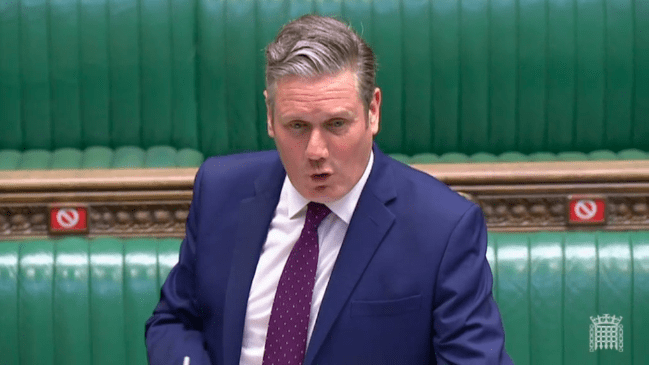Prime Minister’s Questions today wasn’t a particularly easy session for either man taking the main exchanges. For Boris Johnson, it was a struggle to answer what Sir Keir Starmer referred to as a ‘simple question that goes to the heart of this issue’: if it’s not advisable for people to travel to amber list countries unless absolutely necessary, is it now easier for them to do so?
Johnson repeatedly stressed that the government has been clear on travel restrictions, quarantine measures and penalties for failing to observe these rules. But a simple rule in politics is that if you’re having to insist you’ve been clear, then your messages are as clear as mud.
A simple rule in politics is that if you’re having to insist you’ve been clear, then your messages are as clear as mud
But Starmer would have had much more authority on this matter had he not equivocated so much on policy over the past year. The Prime Minister ridiculed the Labour leader for having previously dismissed quarantine as a ‘blunt instrument’.
Later, when Starmer raised the anti-Semitic incidents in London and other cities over the weekend, Johnson was again able to point to something he felt undermined the Labour leader’s commitment to tackling this issue: Starmer’s party’s opposition to the Police, Crime, Sentencing and Courts Bill, which Johnson argued included measures to tackle hate crime.
Then again, Johnson’s authority would have been a little greater later in the session when, in response to a perfectly reasonable question from a Labour backbencher about social care, he decided to embark on a history lesson about the ways in which Labour had failed over the years to reform social care. All politicians had failed on this issue, he added, which is certainly true. But he should surely add himself to that hall of shame, given he claimed two years ago he had a ‘clear plan’ for reforming the sector. Now, the government seems to be embarking on yet another lengthy listening exercise to delay reforms still further.
It was striking, by the way, that Starmer raised anti-Semitism, and Johnson rather clumsily highlighted that this was a ‘welcome’ change in direction for the Labour party, given the depths it plumbed under its last leader. The Prime Minister rather inappropriately dubbed this another ‘U-turn’ from Starmer, which rather undermines the seriousness with which the Tories claim to treat this issue. Perhaps, though, there was a political side to Starmer’s decision to mention the matter too: a reminder that his party is, to quote one of his (few) memorable phrases at PMQs, under new management.







Comments